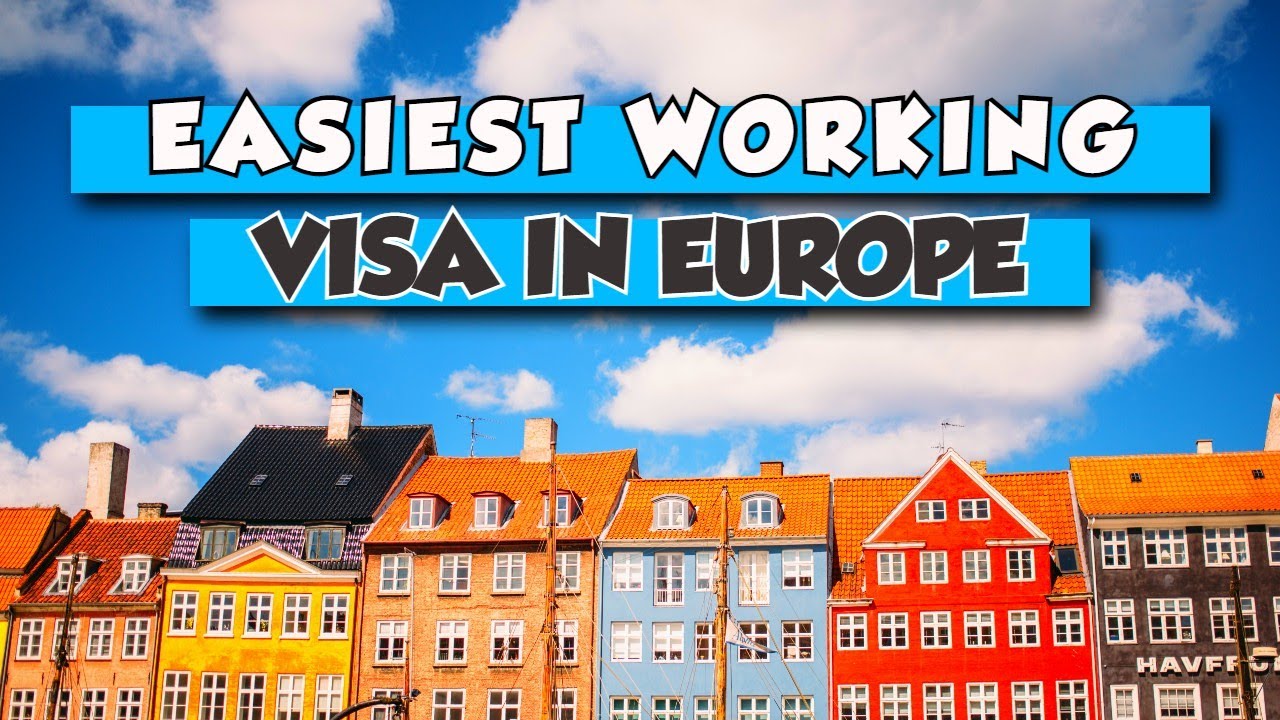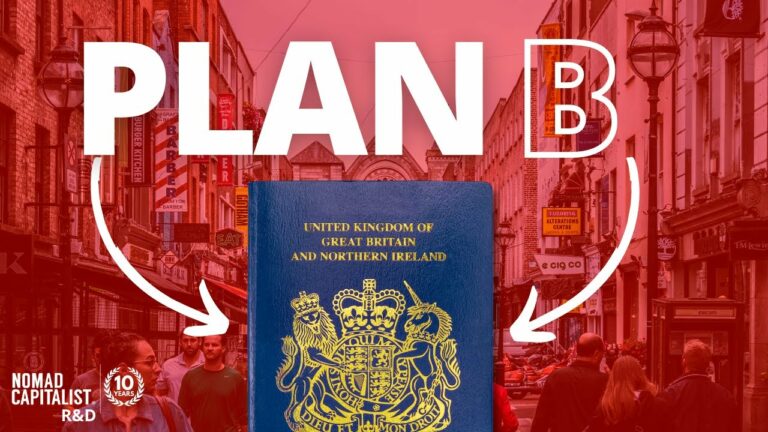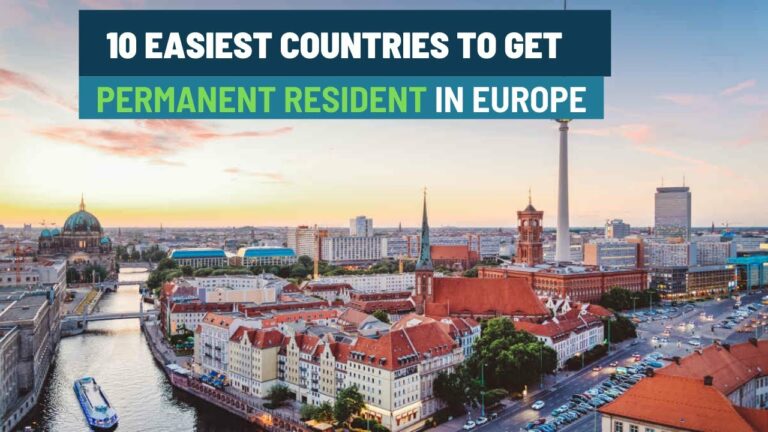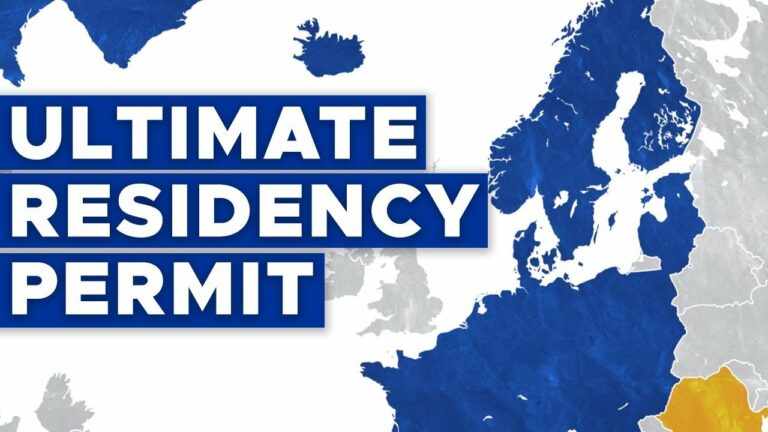Europe’s Work Visa Opportunities: Golden Visa Reviews
Have you ever dreamed of living and working in Europe, but unsure of how to navigate the complicated visa process? As an expat who has successfully secured a work visa in Europe, I understand the frustrations and confusion that come with the application process. But, fear not, as I am here to guide you through the process and provide you with valuable tips that will make your transition abroad smoother.
First and foremost, it is important to research the specific requirements for the country you are interested in working in. Each country has its own set of rules and regulations, and it is crucial to understand these before beginning the application process. Additionally, it is important to have all necessary documents ready and in order, as any missing or incorrect information can result in delays or even denial of your visa.
One tip that proved useful for me was seeking assistance from a local immigration lawyer or agency. They have the expertise and knowledge to guide you through the process and can answer any questions you may have along the way.
Another important aspect to consider is the job market in the country you wish to work in. It may be beneficial to research job opportunities in your field before securing a visa, as some countries have stricter requirements for non-EU citizens.
Stay tuned for more tips and insights on navigating visa processes and other expat-related topics.
How do I get a European work visa?
If you’re looking for a new adventure, experiencing a different culture, or seeking new job opportunities, relocating to Europe might be the right choice for you. However, before you pack your bags and hop on a plane, you need to know how to get a European work visa. In this guide, we’ll cover everything you need to know about the process.
1. Determine which European country you want to work in
The process of obtaining a work visa in Europe varies depending on the country you want to work in. So, the first step is to determine where you want to go. Some countries, such as Germany, have a high demand for skilled workers, while others, such as Spain, may have more opportunities in the tourism industry.
2. Check if you need a work visa
Before applying for a work visa, make sure you actually need one. If you’re an EU citizen, you have the right to work in any EU country without a visa. If you’re from a non-EU country, you’ll need a work visa to legally work in Europe. Check the immigration laws of the country you want to work in to determine if you need a visa or not.
3. Find a job
The next step is to find a job in the country you want to work in. Some countries, such as Germany and Austria, require you to have a job offer before applying for a work visa. Other countries, such as Spain and Italy, allow you to apply for a visa and then find a job once you arrive.
4. Apply for a work visa
Once you have a job offer, you can apply for a work visa. The requirements and process vary depending on the country, but generally, you’ll need to provide the following:
- A valid passport
- A completed visa application form
- Proof of employment (job offer letter)
- Proof of education and qualifications
- Proof of health insurance
- Proof of financial means to support yourself
Make sure to check the specific requirements for the country you’re applying to, as they may require additional documentation.
5. Wait for a decision
After you’ve submitted your application, you’ll need to wait for a decision. The processing time varies depending on the country and can take anywhere from a few weeks to several months. During this time, the immigration authorities may request additional documentation or schedule an interview with you.
6. Arrive in the country
Once your work visa has been approved, you can pack your bags and head to your new country. Make sure to bring all the necessary documentation with you, as the immigration officials may ask to see it when you arrive. You may also need to register with the local authorities and obtain a residence permit.
Can a US citizen work in Europe?
If you’re a US citizen considering a move to Europe, you’re likely wondering if obtaining a work visa is even possible. The good news is that it is possible, but it can be a bit of a process.
First and foremost, it’s important to understand that European countries have their own immigration laws and regulations. This means that the rules for obtaining a work visa can vary from country to country. In general, however, US citizens will need a visa and work permit to legally work in any European country.
The first step in obtaining a work visa is to find a job in the country you plan to move to. This can be done through job search websites, networking, or even by reaching out to companies directly. Once you have a job offer, the employer will typically sponsor your work visa.
The type of work visa you’ll need will depend on the country and the job. In some cases, you may need to apply for a special type of visa, such as a highly skilled migrant visa, which is designed for professionals with specific skills and education. In other cases, a standard work visa will suffice.
It’s important to note that obtaining a work visa can be a lengthy and complicated process. It’s important to start the process early and be prepared to provide a lot of documentation, including proof of employment, education, and financial stability.
One important thing to keep in mind is that some European countries have quotas for the number of work visas they can issue each year. This means that it may be more difficult to obtain a work visa in some countries than in others.
Another thing to consider is that some countries have language requirements for certain types of jobs. If you’re planning to work in a country where you don’t speak the language, you may need to take language classes or demonstrate proficiency in the language before you can obtain a work visa.
It’s important to do your research, start the process early, and be prepared to provide a lot of documentation. With patience and persistence, you can achieve your dream of working in Europe.
Which EU countries are easiest to get a work visa?
Are you considering a move to Europe and wondering which countries offer the easiest path to obtaining a work visa? Look no further. In this article, we’ll explore the top EU countries that make it relatively easy for foreigners to obtain a work visa.
1. Germany
Germany is a popular destination for expats and has a reputation for having a strong economy and high employment rates. The country has a variety of industries that require skilled workers, making it an attractive destination for professionals.
One of the easiest ways to obtain a work visa in Germany is through the EU Blue Card program. This program is designed for highly skilled workers and offers a streamlined application process. To be eligible, you must have a university degree or five years of professional experience and a job offer with a salary of at least €55,200 per year.
2. Spain
Spain is known for its sunny beaches, vibrant culture, and relaxed lifestyle. The country has a range of industries, including tourism, hospitality, and technology, that attract expats from around the world.
To obtain a work visa in Spain, you must have a job offer from a Spanish employer. The employer must sponsor your visa application and prove that no suitable candidates are available in the local labor market. The process can take some time, but it’s generally straightforward as long as you have a job offer.
3. France
France is a popular destination for expats seeking a high quality of life, delicious cuisine, and rich culture. The country is home to a variety of industries, including fashion, technology, and finance, making it an attractive option for skilled workers.
The easiest way to obtain a work visa in France is through the Talent Passport program. This program is designed for highly skilled workers and offers a simplified application process. To be eligible, you must have a job offer with a salary of at least €53,836 per year.
4. Netherlands
The Netherlands is a small but prosperous country that offers a high standard of living, excellent healthcare, and a strong economy. The country is home to several international companies, including Philips, Shell, and Unilever, making it an attractive destination for professionals.
The easiest way to obtain a work visa in the Netherlands is through the Highly Skilled Migrant Program. This program is designed for highly skilled workers and offers a streamlined application process. To be eligible, you must have a job offer with a salary of at least €38,961 per year.
5. Portugal
Portugal is a beautiful country with a rich history, friendly people, and delicious cuisine. The country has a growing economy and a range of industries, including tourism, technology, and renewable energy, that attract expats from around the world.
To obtain a work visa in Portugal, you must have a job offer from a Portuguese employer. The employer must sponsor your visa application and prove that no suitable candidates are available in the local labor market.
However, it’s important to note that visa requirements can change, so it’s important to consult with an immigration expert or do your own research before making any major decisions.
Good luck on your journey to working abroad!
Can I get a work visa in Europe without a job?
One of the most common questions that people ask when considering a move to Europe is whether it is possible to obtain a work visa without having a job lined up. The short answer is yes, it is possible, but it can be a challenging process.
Job Seeker Visas
Several countries in Europe offer job seeker visas that allow individuals to stay in the country for a limited amount of time while they search for employment. These visas are typically valid for three to six months and have specific requirements that must be met.
Germany, for example, offers a job seeker visa that allows individuals to stay in the country for six months while they look for a job. To obtain this visa, you must have a minimum of five years of experience in your field and enough funds to support yourself during your stay in the country.
Entrepreneur Visas
If you are interested in starting your own business in Europe, an entrepreneur visa may be an option for you. These visas are designed for individuals who want to invest in and operate a business in Europe.
France, for example, offers an entrepreneur visa that is valid for up to four years. To qualify for this visa, you must have a viable business plan and enough funds to support yourself and your business during your stay in the country.
Investor Visas
Another option for obtaining a work visa in Europe without a job is through an investor visa. These visas are designed for individuals who are willing to invest a significant amount of money in the country.
For example, Portugal offers a golden visa program that allows individuals to obtain residency in the country by investing a minimum of €500,000 in real estate. This visa not only allows individuals to live and work in Portugal but also provides a pathway to citizenship.
obtaining a work visa in Europe can be a complex process, but with the right research and guidance, it can lead to a fulfilling expat life. Understanding the local customs and cultural events can make a huge difference in adapting to a new environment. Additionally, being aware of the investment opportunities and legal aspects of visas, citizenship programs, and golden visas can help in making informed decisions. As an expat, I can attest that the benefits of living and working abroad are immeasurable. It broadens one’s perspective, improves language skills, and creates a unique personal and professional experience. With the right resources and mindset, the journey towards obtaining a work visa in Europe can be a life-changing opportunity.






